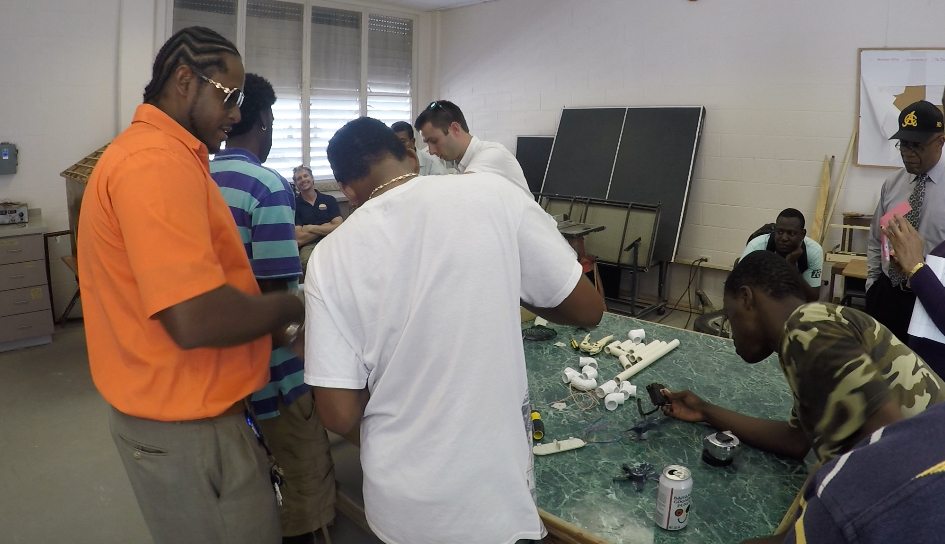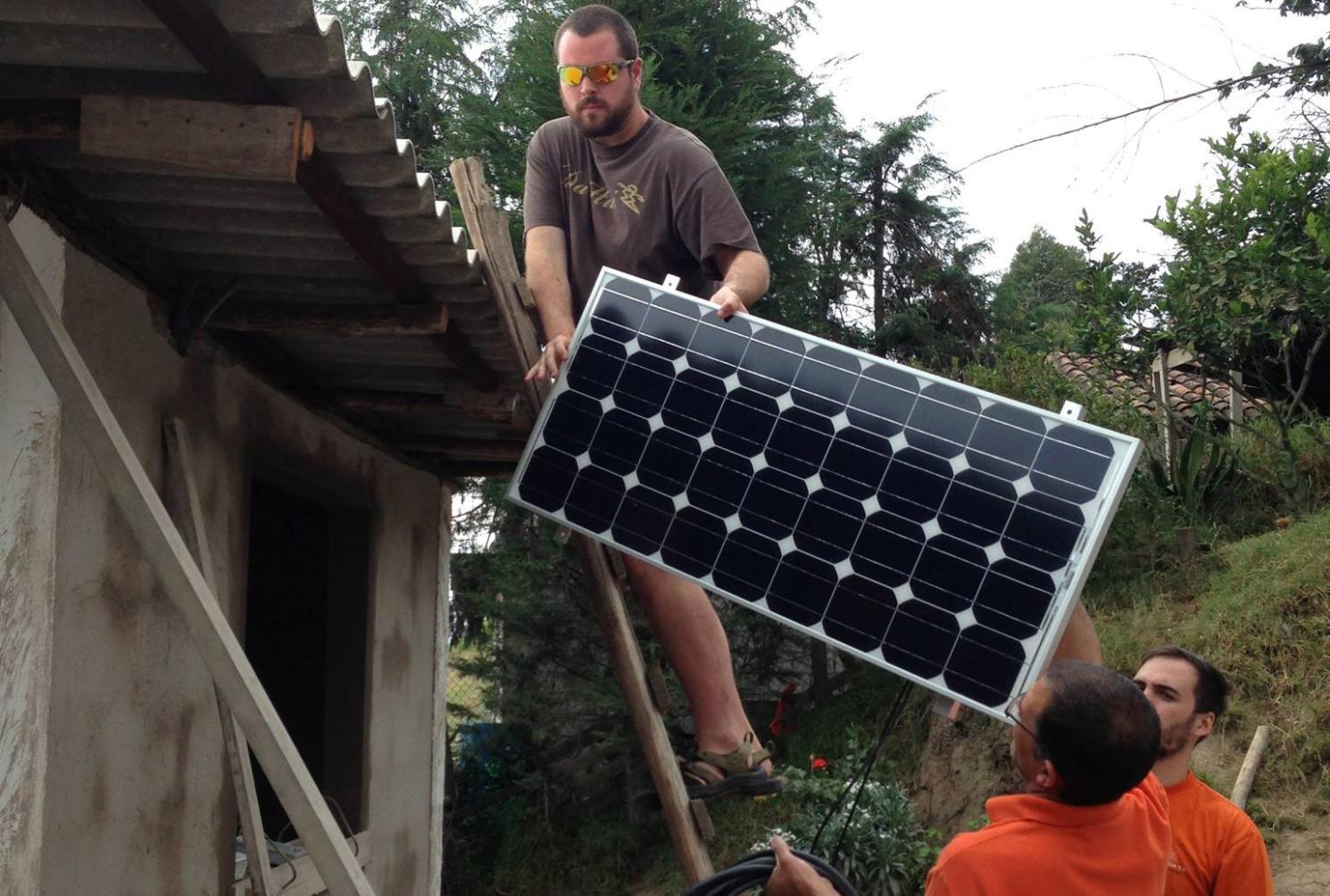In the photos, it looks like paradise: palm trees and white sand beaches surrounded by clear blue Atlantic water. But for residents of the island where nearly every day is sunny and bright, there’s a hidden cost: electricity.
Instead of harnessing the intense sunlight that brings tourists from all over the world, Turks and Caicos islanders often pay hefty sums to energy companies that use fossil fuels to generate power. It’s a fact that makes Dr. Chuck Ross, professor of physics at Longwood University, shake his head.
“I’ve never been to a place sunnier than those islands,” said Ross. “And it’s really astounding that there aren’t solar panels on the top of every house there—it’s really the perfect spot to use alternative energy.”
When Ross first arrived on the island, it wasn’t for a vacation. He had learned of the situation from Herb Wilcox, a retired industrial engineer and energy consultant, who urged Ross to connect with professors at the local community college to work on advancing the use of solar energy in “paradise.” On several trips, Ross did just that, teaching students to build and install solar panels to power their houses.

The Turks and Caicos project is one of several Ross and Wilcox have collaborated on, including installing solar panels in a remote Ecuadorian village and testing innovative airfoil designs for airplanes to harness wind power.
Now the pair have established an annual award to be given to a Longwood student who has completed or is about to complete research that helps preserve and improve the earth’s environment.
“We intentionally left the criteria vague so students from all disciplines can apply,” said Ross. “The research could be anything—from developing low-cost renewable energy solutions for disadvantaged populations to creating lesson plans for teaching fourth-graders about climate-change issues. We have a lot of really talented, creative students at Longwood, and the climate is an issue that affects everyone’s discipline. I’m very excited to see what students will come up with.”
Each spring, the selected Longwood student will receive a $1,000 award for their research. The prize is supported by a $25,000 endowment established by Ross and Wilcox.
I’ve been at Longwood for 25 years. It’s time for me to give something back to the students who have given me so much through the years. To do it in a way that I can support an issue that’s very important to me is very fulfilling.
Dr. Chuck Ross, professor of physics at Longwood University
“I’ve been at Longwood for 25 years,” said Ross, who was dean of the Cook-Cole College of Arts and Sciences from 2005-14. “It’s time for me to give something back to the students who have given me so much through the years. To do it in a way that I can support an issue that’s very important to me is very fulfilling.”
Wilcox, an industrial engineer with Westinghouse Electric Company in the 1950s and ’60s, led the team of engineers that created the photo-sensitive device on the video camera used to record Neil Armstrong’s historic step off the shuttle ladder in August 1969 and several other lunar landings.
Wilcox spent much of his life overseas after leaving Westinghouse, teaching in the Philippines and consulting with the Arabian American Oil Company in Saudi Arabia. His time abroad influenced his advocacy of alternative energy and made him a staunch proponent of solar-energy generation.
The first Wilcox-Ross award recipient will be named in spring 2018.



Leave a Comment